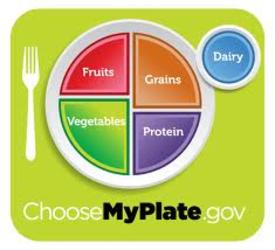Why exercise if you eat back the calories?

dengarrett
Posts: 367 Member
I don't really think the issue is about eating back your calories - it's really about eating enough to keep your body from going into starvation/famine mode. I think you do have to figure in your exercise calories to determine if you are eating enough. You have to find the "sweet spot" of a calorie deficit that burns fat, but is not considered starvation.
So as I was climbing on my bike today for a workout, I had to ask myself - what is the value of working out if I am just going to eat them back? Obviously there are health benefits of strengthening my cardiovascular system, and strength training increases muscle that burn more calories. But beyond that - why do it if I am going to eat back the calories? I guess it gives me more calories to eat - which does have value.
Another way to ask the question – is there some quality about calories burned during exercise that would not contribute to starvation mode? If so, then don’t include them when preventing starvation mode (in other words - don’t eat them back). But if calories burned during exercise are no different than “normal” calories (such as BMR calories) then you have to consider them when preventing starvation mode (in other words – eat them back).
So as I was climbing on my bike today for a workout, I had to ask myself - what is the value of working out if I am just going to eat them back? Obviously there are health benefits of strengthening my cardiovascular system, and strength training increases muscle that burn more calories. But beyond that - why do it if I am going to eat back the calories? I guess it gives me more calories to eat - which does have value.
Another way to ask the question – is there some quality about calories burned during exercise that would not contribute to starvation mode? If so, then don’t include them when preventing starvation mode (in other words - don’t eat them back). But if calories burned during exercise are no different than “normal” calories (such as BMR calories) then you have to consider them when preventing starvation mode (in other words – eat them back).
0
Replies
-
Exercise calories are added to your daily requirements so that you can properly maintain your daily need.
Say for example that you hypothetically need 1,000 calories a day in order to survive and that's what you eat.
Then you do a workout that burns 1,000 Calories.
So that makes your Net consumtion for the day Zero. (1000 - 1000 = 0)
With that in mind, in order to maintain that 1,000 calorie net....you'll need to consume an Additional 1,000 calories to counteract the exercise done that day....so that you are not left with a defacit in relation to your daily needs.
That being said, the MFP system automatically factors your goals in to your daily needs so that has already been considered in with your daily requirements.
Your BMR is the amount of calories you would need/use on a daily basis if you did nothing but lie in bed all day. Since any extra activity requires fuel...you'll need to add in those "exercise calories" in addition do yout BMR requirements.
So, all that put together....Your exercise calories are added on top of your daily needs in order to maintain a healthy balance in your personal diet and nutrition.0 -
You just have to keep your deficit. 1200 for women and 1500 for men...0
-
You answered a lot of your own questions correctly. I don't know how long you have been doing this, but you will find motivation way beyond weight loss to work out. You will get to the point where you will feel something terribly wrong with you day, if you don't. You will miss it as much as sleep.
But regarding weight loss, as you build muscle mass and change your stamina level, You will burn more calories at rest. So many more reasons I could list, but my husband is calling, and you will enjoy discovering for yourself. Keep it up!0 -
Let's say you were eating 3500 cals with no exercise every day and thats how you gained weight.
So now, you wanna lose as fast as possible. You eat 1200 cals a day with no exercise. That's your minimum deficit. You add 400 cals of exercise. Your deficit becomes 800. So you add back that 400 by eating it making it 1200 cals deficit again. So, you eat a total of 1600 cals, with exercise. That is still significantly less than what you were probably consuming before AND you don't risk putting your body into starvation mode nor do you risk being malnutritioned. WIN!0 -
Thanks - I fully understand the math, know all of the stock answers and not suggesting that workouts are not valuable. This is about the arguments on MFP about eating back exercise calories. I am suggesting that the argument is not about eating back calories - it's about preventing starvation mode. Also - interested in the (unlikely) possibility that there is some difference in calories burned during exercise that may factor in differently in metabolism.0
-
Thanks - I fully understand the math, know all of the stock answers and not suggesting that workouts are not valuable. This is about the arguments on MFP about eating back exercise calories. I am suggesting that the argument is not about eating back calories - it's about preventing starvation mode. Also - interested in the (unlikely) possibility that there is some difference in calories burned during exercise that may factor in differently in metabolism.
True. But in many cases, eating the exercise calories prevents starvation mode. Like I said as long as the deficit is in range, you should be good. If you are an active person, your diet profile should be changed to accomodate your metabolism calculated and calories per day.0 -
I know it does seem useless, but there is logic. I like to think of it as burning off the old "gas" stored in my fat cells and the eating back of some of the calories is replacing it with "higher grade unleaded" something that is better for my body. My body needs that fuel to function. If you don't eat back some of the calories, you might hit the wall of exhaustion, not get enough protien and vitamins to properly help your body work, and end up in a vicious cycle. I have learned the hard way, that you can exercise too much. That is when you should listen to the WHY BOTHER in your head and slack off some.
Exercising lets me replace fat with lean tissue that lets me burn more calories that way. Exercising lowers my blood pressure, helps my mood, helps my breathing (asthma issues). So on the days I question everything and have the why bother attitude, I know that in the long run, I am helping my body work better, even if I don't lose an ounce.0 -
Yeah I think we said the same thing, but I didn't do as good a jobThanks - I fully understand the math, know all of the stock answers and not suggesting that workouts are not valuable. This is about the arguments on MFP about eating back exercise calories. I am suggesting that the argument is not about eating back calories - it's about preventing starvation mode. Also - interested in the (unlikely) possibility that there is some difference in calories burned during exercise that may factor in differently in metabolism.
True. But in many cases, eating the exercise calories prevents starvation mode. Like I said as long as the deficit is in range, you should be good. If you are an active person, your diet profile should be changed to accomodate your metabolism calculated and calories per day. Another thought is that this is not an exact science - the calculations of BMR, activitiy level, etc. used by MFP (and all other such apps) are based on averages and we all vary to a greater or lesser degree from the average. So some are able to "eat back their calories" moreso than others and still not fall into starvation mode. As you say - it's really about keeping within the range. 0
Another thought is that this is not an exact science - the calculations of BMR, activitiy level, etc. used by MFP (and all other such apps) are based on averages and we all vary to a greater or lesser degree from the average. So some are able to "eat back their calories" moreso than others and still not fall into starvation mode. As you say - it's really about keeping within the range. 0 -
Could I ask you to elaborate on that a little? What were the symptoms of exercising too much?I have learned the hard way, that you can exercise too much. That is when you should listen to the WHY BOTHER in your head and slack off some.
(Again - I'm not stopping exercise - just exploring this a bit.)0 -
The primary symptom is exhaustion. Your muscles do not recover between workouts and you begin to feel weaker each day. For a runner, this manifests itself with "dead legs.". Your resting heart rate and blood pressure will rise. Your body will create excess cortisol and you will retain weight. You will have problems sleeping. You can google overtraining for more descriptions.
Could I ask you to elaborate on that a little? What were the symptoms of exercising too much?I have learned the hard way, that you can exercise too much. That is when you should listen to the WHY BOTHER in your head and slack off some.
(Again - I'm not stopping exercise - just exploring this a bit.)0 -
...if it feels good DO IT!0
This discussion has been closed.
Categories
- All Categories
- 1.4M Health, Wellness and Goals
- 398.3K Introduce Yourself
- 44.7K Getting Started
- 261K Health and Weight Loss
- 176.4K Food and Nutrition
- 47.7K Recipes
- 233K Fitness and Exercise
- 462 Sleep, Mindfulness and Overall Wellness
- 6.5K Goal: Maintaining Weight
- 8.7K Goal: Gaining Weight and Body Building
- 153.5K Motivation and Support
- 8.4K Challenges
- 1.4K Debate Club
- 96.5K Chit-Chat
- 2.6K Fun and Games
- 4.7K MyFitnessPal Information
- 17 News and Announcements
- 21 MyFitnessPal Academy
- 1.5K Feature Suggestions and Ideas
- 3.2K MyFitnessPal Tech Support Questions





